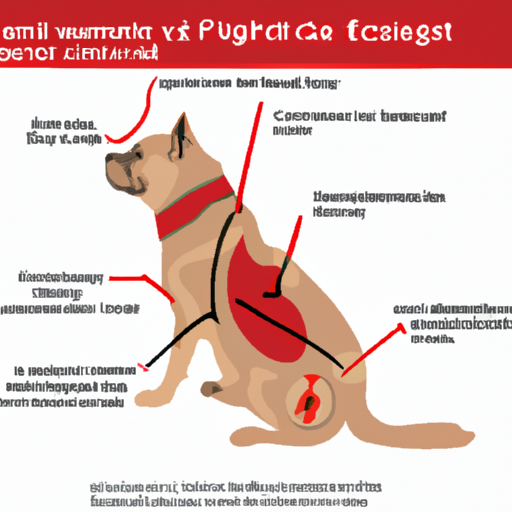The love you have for your furry companion is immeasurable, making their health one of your top priorities. Understanding the symptoms of congestive heart failure in dogs can help you be well-prepared to act if your pet becomes unwell.
Understanding Congestive Heart Failure
Congestive heart failure in dogs occurs when the heart can no longer pump blood effectively, leading to fluid buildup in the heart, lungs, and abdomen. While it can be a frightening diagnosis, understanding the symptoms can help you ensure your pet gets the necessary care as soon as possible.
Recognizing the Symptoms
There are several symptoms you should be on the lookout for:
- Rapid or difficult breathing
- Coughing
- Sudden weight gain or bloating
- Lethargy or fatigue
- Loss of appetite or difficulty eating
The Stages of Congestive Heart Failure
Just as every heartbeat counts, so does every stage of congestive heart failure. The disease usually progresses through four stages, each with its unique set of symptoms.
| Stage | Symptoms |
|---|---|
| I | Your dog may show no symptoms at all |
| II | Mild symptoms such as occasional cough and fatigue after exercise may appear |
| III | Symptoms become more severe and may include difficulty breathing and restlessness |
| IV | Severe symptoms such as fainting, refusal to eat, and severe lethargy are common |
When to Consult Your Veterinarian
If you notice any of the symptoms mentioned above, it is essential to consult your vet immediately. Early detection and treatment can significantly improve your dog’s quality of life and even prolong it.
How to Support Your Dog
As a caregiver, you can support your dog by:
- Ensuring they get regular check-ups
- Keeping up with any prescribed medication
- Providing a balanced, low-sodium diet
- Ensuring they get gentle exercise
FAQ’s
Q: Is congestive heart failure painful for dogs?
A: While the condition itself is not painful, the symptoms such as difficulty breathing can cause discomfort.
Q: Can a dog live a normal life with congestive heart failure?
A: With proper care and treatment, many dogs can live a comfortable life for months to years after diagnosis.
Q: How can I prevent congestive heart failure in my dog?
A: Regular vet check-ups, a healthy diet, and regular exercise can help maintain your dog’s heart health.
Remember, your dog relies on you for their health and happiness. By understanding the symptoms of congestive heart failure, you can ensure they receive the care they need to live a long, comfortable life.



